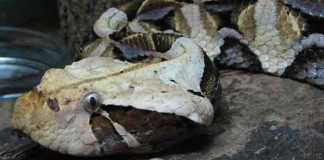I know it’s not the most pleasant question or topic to discuss before lunch or dinner, but poop is a major part of our life on earth. We humans usually poop at least once a day, while birds might poop tiny bits 40-50 times a day. Snakes, like any other living organism, poop regularly. However, in contrast to humans and birds, snakes don’t poop that often at all. Some researchers even claim that snakes are among the least pooping animals on our planet.
According to a research published in the book “Biology of the Vipers” – snakes can go on without pooping for amazingly long periods of over a YEAR. That’s definitely amazing, and truthfully – a bit scary to think about as a human, but it has nothing to do with constipation. The snake poop biology has practically evolved over millions of years, in order to increase its survival chances. How exactly? We’ll answer that shortly, but first let’s understand the technical aspect of “How do Snakes poop?”.
The Technical Aspects of Snake Poop Biology
Very similarly to bird poop, snake poop is comprised of two major components: The fecal fragment (the poop) and the uric acid fragment (the snake urine). Snakes expel this poop through their anal scale that is called “Cloaca”, which also marks the end of their belly and the beginning of their tail. The Cloaca is the only opening that serves the intestinal, urinary and genital tract. Snakes also mate and lay their eggs through the Cloaca.
How does the Snake Poop Biology Help It Survive?
Well, as you probably already know – snakes hunt prey that is usually much bigger than themselves, and they eat it whole, be it a big rat or a huge deer. The fascinating snake diet means that after a deer-meal, the snake will triple (or more) its body mass in just a few minutes. The snake will then begin to digest the deer from the outside in. According to Matthias Starck, a zoologist at the University of Jena, “Snakes develop their digestive organs into extremely efficient functional units within a very short time and return them to their original state when they have done their job”. Snakes even rebuild other organs, including their hearts, which grow exponentially in size each time they eat.
By growing their organs only for digesting their meals and then instantly shrinking them back to their original size – snakes are actually saving lots of energy. This valuable energy saving technique is used by snakes to survive for long periods of time, when they can’t find no prey.
As you can see, answering the question of “How do snakes poop?” has already led us to some very interesting alleys, so let us continue…
Why do snakes poop so infrequently?
Well, it all boils down to food, and the snake diet. As we know, snakes don’t always find prey. It’s a game of luck for them, and snakes might eat very infrequently, sometimes only a few times a year. Once they do find prey, swallow it whole and digest it, it is then reduced to poop, and the amount of time it takes until it slips out depends on the snake species. For some snakes, like Rat-snakes, it will take about two days between eating and pooping. Other snake species like bush vipers will take between 3-7 days. However, the most fascinating species are heavy-bodied snakes like Boas and Pythons, whose poop can stay inside for months and even longer than a year. Researchers have shown in field tests that a Blood Python held its poop for 386 days, while a Gaboon Viper didn’t poop for 420 days.
Why do these snakes store their poop for so long?
Some scientists claim that snakes like Boas and Pythons store their poop in order to add extra weight to their bodies, giving them an extra advantage over potential prey when fighting, catching and subduing it. The poop is concentrated in the posterior of the snake body, which could be used as a leverage when the snake strikes a prey or constricts it.
These assumptions haven’t been proven yet and there are still a lot of questions out there regarding the Snake Poop. Problem is, I’m not sure that many scientists are thrilled to delve into it…:-)


